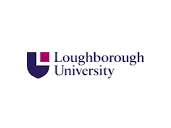Overview
Have you ever wondered how Ryanair can sell its plane tickets for a fraction of the price charged by airlines such as BA and still be a highly profitable business?
Why Primark should behave in a more socially responsible way? Why changes in external factors can affect the performance of businesses such as Tesco and John Lewis? Or, how Starbucks and Apple have achieved global success?
If you’d like to answer these questions (and a whole lot more) then a Business A Level might be what you’re looking for.
Entry Requirements
In addition to the general criteria that the college requires, you will need a minimum of:
- Grade 4 in GCSE English Language
- Grade 4 in GCSE Mathematics
- Grade 4 in GCSE Business Studies (if taken)
Course Details
In the first year you will study ‘Marketing and People‘ and ‘Managing Business activities’. You will learn how businesses might improve their competitiveness and profitability by adapting their marketing mix, managing their employees and finances effectively, and by using their resources efficiently. You will also study the effects of changes in the business cycle and economic factors.
In the second year you will study two additional themes of ‘Business Decisions and Strategy’ and ‘Global Business’. You will consider more complex business scenarios and focus on the strategies of global corporations. You will examine how multinational businesses operate to achieve their objectives and assess the impact of economic, social, political, ethical, legal, environmental, and technological factors on these corporations. You will also analyse the ways in which businesses can manage change successfully when responding to changing external forces and a competitive environment.
Assessment
Assessment is by three written exam papers. Exams are comprised of data response questions, extended open-response questions and essays.
Subject Combinations
Business combines well with a very wide range of subjects including Economics, English, Mathematics, History, Geography, Media Studies, PE, Politics, Psychology, languages and science subjects.
A very limited number of universities prefer students not to study Business and Economics (mainly Oxford, Cambridge and Bristol) for certain degree courses, but students who have studied both at A Level have gone on to leading universities such as Birmingham, Exeter, Manchester and Southampton. Some university courses prefer Business to be studied alongside Mathematics A Level.
University Destinations
Business A Level is a highly respected qualification, with 90% of Esher Sixth Form College students progressing onto University.
Here are some typical University Destinations that our Business A Level students go on to. Click on a destination to see some examples of courses they have taken;

Nottingham Trent University
Typical courses: Business Management and Marketing / Psychology with Criminology / Product Design / Business Management and Entrepreneurship / Business / Graphic Design / Property Development and Planning / Business Management and Marketing
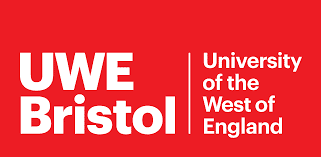
University of the West of England
Typical courses: Media Communications (with Foundation Year) / Marketing / Media Production / Architectural Technology and Design / Psychology / Sports Business and Entrepreneurship / Marketing
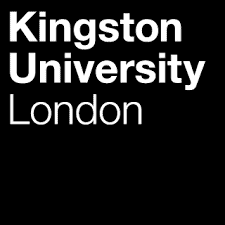
Kingston University
Typical courses: Fine Art / Product and Furniture Design / Computer Games Programming (with Foundation Year) / Business Management

University of Sussex
Typical courses: Geography and International Relations / Psychology with Criminology / Accounting and Finance / Psychology (with a professional placement year) / Business and Management Studies (with a professional placement year)

Bournemouth University
Typical courses: Multimedia Journalism / Media Production / International Hospitality Management / Photography / Sport Coaching / Sport and Exercise Science
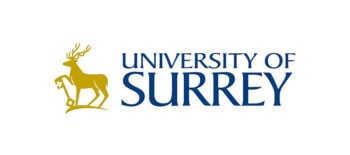
University of Surrey
Typical courses: Business Economics / Nursing Studies (Registered Nurse Adult Nursing) / Media and Communication / Business Management with Foundation Year
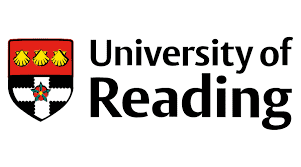
University of Reading
Typical courses: Business and Management / Real Estate / Ancient History and Archaeology / Applied Psychology (Clinical)

University of Portsmouth
Typical courses: Sociology with Criminology / Business and Management / International Business / Geography

University of Leeds
Typical courses: Global Creative Industries / International Business and Finance / Fashion Marketing
Careers
Degrees in business-related courses such as Business Management, Accountancy, International Business and Marketing and related subjects such as Economics. Business prepares you for a variety of careers including marketing, banking, accountancy, finance, law, and management consultancy.
A Business qualification can make you an attractive candidate in many fields.
FAQs
What skills will I need and develop on this course?
You will need good written skills for essay writing and a genuine interest in business news. Strong numerical skills and the desire to learn how to calculate, interpret and use data is essential. You will develop a range of invaluable skills including case study and data analysis, problem-solving and logical reasoning. Above all Business encourages you to develop mature and rational decision-making skills.
What is the difference between Business and Economics A Levels?
What makes Business and Economics different from one another is their different approaches. Here is an example of how their contrasting approaches to employment issues illustrate the differences between these two subjects:
In Business, students would consider how workers and their wages affect companies in term of costs, competitiveness and profits. For example, high UK labour costs led to Dyson relocating its manufacturing facility to Malaysia in order to remain profitable; or the cause and impact of industrial action at British Airways; or how Nissan’s use of lean production techniques resulted in a highly productive UK workforce which improved the firm’s competitiveness and success.
In Economics, however, students investigate why workers are paid different wages because of differences in their skills and the scarcity of their skills. Students also consider how government policy has attempted to encourage people to take up paid employment and has dealt with the issue of migration or changes in the population.
Business helps students understand the way the world is changing and how businesses can respond, whilst Economics helps students understand why the world is changing in the first place.
What’s the difference between the Business A Level and the Business BTEC?
The key difference is in how both courses are assessed. The A Level is 100% exam assessed at the end of your two-year course, while the BTEC is 60% exams taken throughout your two years, with a 40% coursework project.
The second difference is in the content covered.
Business A Level covers marketing, finance, HRM, operations management, external influences, entrepreneurship, business strategy, international trade and globalisation.
Business BTEC covers a narrower range of topics, marketing, business and personal finance, recruitment and selection, types of business and how they are affected by their external environment.
What extra support/enrichment activities are on offer?
Students are provided with a range of support both in and out of the classroom to enable each individual to realise their potential. In addition, the department runs a number of trips in the first and second year, as well as opportunities to attend a revision conference with examiners. We also invite external speakers to the college to discuss relevant topics, for example, Global Marketing, and How Businesses Manage Change.
Our Learning Resource Centres offer extensive online resources that you can use in college or at home. To find out more visit Online Subscription Resources for Business



